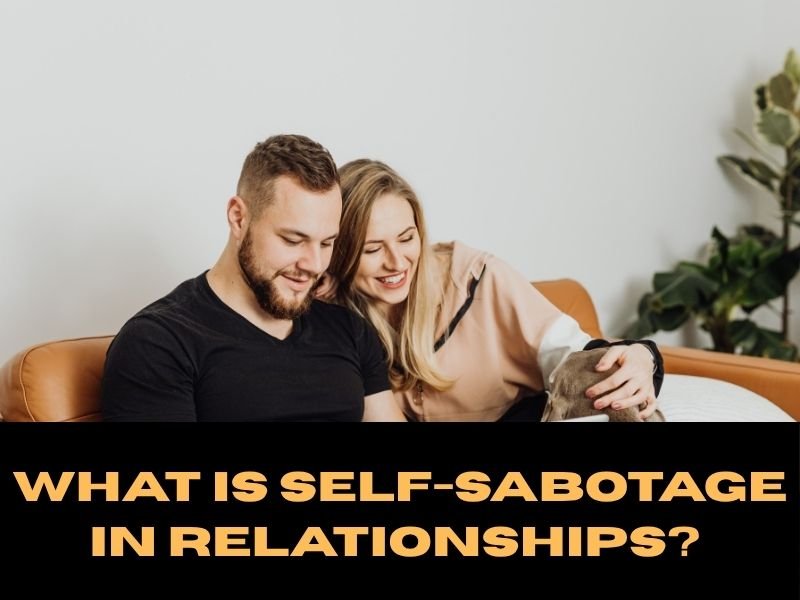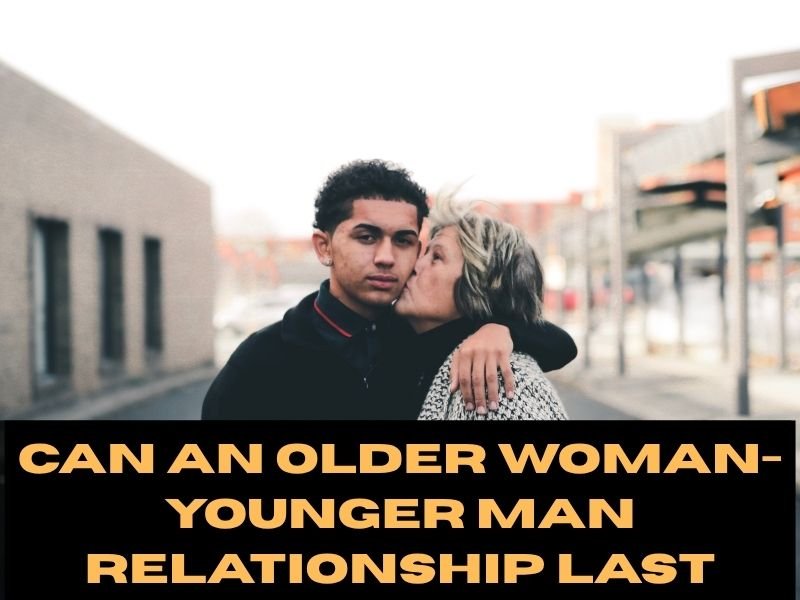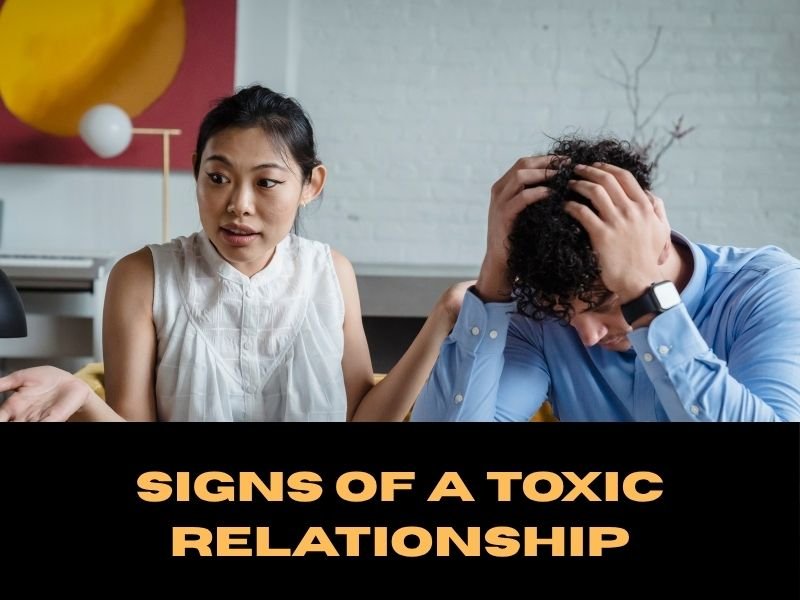Even when you truly want a relationship to succeed, however, self-sabotaging in relationships does occur when you inadvertently cause issues, alienate your partner, or sour the relationship. It is similar to creating a lovely bridge to love and then piercing it without understanding the consequences. Self-sabotage is often motivated by ingrained fears, unresolved trauma, or unhealthy relationship patterns that have developed over time, rather than being intentional.
This behaviour frequently takes the form of innocuous behaviours, such as a sarcastic remark made during a disagreement, an unexpected desire to “test” your partner’s loyalty, or a tendency to retreat when things become serious. Self-sabotage can subtly undermine intimacy, trust, and long-term commitment if left unchecked. The true psychology of it, the warning signs that you may be engaging in it, and doable solutions to end the cycle will all be covered in this guide so that your relationships can finally flourish.
The Psychology Behind Self-Sabotaging Behaviour in Love
 Self-sabotaging behavior in relationships isn’t about wanting to end love; it’s about protecting yourself from what you think is a threat. Psychologists frequently associate it with attachment theory, which posits that our adult interpersonal connections are influenced by our formative experiences. People who didn’t get consistent care or emotional support as kids may learn to avoid being vulnerable, be afraid of being rejected, or expect to be let down without even knowing it. In romantic relationships, these defense mechanisms can sometimes show up as behaviors that keep people apart, like criticizing each other too much or never trusting each other.
Self-sabotaging behavior in relationships isn’t about wanting to end love; it’s about protecting yourself from what you think is a threat. Psychologists frequently associate it with attachment theory, which posits that our adult interpersonal connections are influenced by our formative experiences. People who didn’t get consistent care or emotional support as kids may learn to avoid being vulnerable, be afraid of being rejected, or expect to be let down without even knowing it. In romantic relationships, these defense mechanisms can sometimes show up as behaviors that keep people apart, like criticizing each other too much or never trusting each other.
Anna, a successful businesswoman who wants a stable relationship. She meets Mark, who cares about her. At first, she’s open and loving, but when Mark starts to show that he cares more, Anna starts to find things wrong with him. Little things that used to be cute become “deal breakers.” She cancels dates, starts fights for no reason, and keeps asking him what he wants. It’s not that she doesn’t like him; it’s that love feels risky deep down. Because she has been abandoned before, her brain thinks that pushing him away now will hurt less than being hurt later. This is what self-sabotage looks like when it’s not visible.
Common Root Causes of Relationship Self-Sabotage You Might Be Overlooking
People who hurt themselves in relationships do not usually do it on purpose. It often comes from deep-seated emotional patterns that were formed by things that happened in childhood, past heartbreaks, or even messages from society about love. Childhood wounds that haven’t healed, attachment issues, and repeated disappointments can make you believe, without realising it, that relationships are dangerous or doomed to fail. These beliefs then lead to actions that push love away, even when the person wants to connect.
Think about what happened to David. He learnt early on that being close to someone can hurt when he grew up in a house where people fought and were quiet. When Emily tried to get closer to David as an adult, he instinctively pulled away by cancelling plans, avoiding emotional talks, and doubting her intentions. He thought he was just protecting himself, but in reality, he was using the same defence mechanisms he had as a child. If you do not recognise and deal with these root causes, the cycle of self-sabotage can quietly repeat in every relationship, no matter how much love is there.
Here’s a list of 20 common root causes of relationship self-sabotage that people often overlook:
-
Fear of Vulnerability – Avoiding openness because you fear being hurt.
-
Unresolved Past Trauma – Carrying wounds from childhood or previous relationships.
-
Low Self-Worth – Believing you don’t deserve love or happiness.
-
Perfectionism – Expecting flawless love and ending things when reality hits.
-
Fear of Abandonment – Clinging too tightly or pushing people away before they leave.
-
Negative Self-Talk – Convincing yourself you’re not enough for your partner.
-
Overthinking – Reading too much into small actions or words.
-
Unrealistic Expectations – Comparing your partner to fantasy ideals.
-
Lack of Boundaries – Saying “yes” when you should say “no,” then resenting it.
-
Fear of Intimacy – Pulling back when things start to get too close.
-
Attachment Wounds – Insecure or avoidant attachment styles affecting closeness.
-
Control Issues – Needing to dominate situations out of fear of being powerless.
-
Fear of Conflict – Avoiding hard conversations until problems explode.
-
Self-Isolation – Withdrawing emotionally instead of communicating.
-
Comparisons to Exes – Measuring your partner against someone from your past.
-
Impatience – Expecting love to move too quickly and sabotaging when it doesn’t.
-
Trust Issues – Assuming betrayal without evidence.
-
Guilt or Shame – Feeling undeserving of a healthy relationship.
-
Fear of Losing Independence – Resisting closeness to protect your freedom.
-
Unconscious Testing – Pushing your partner away to see if they’ll still stay.
11 Subtle Signs You Are Self-Sabotaging Your Relationship Without Realising It
Self-sabotage in relationships often happens without anyone noticing. You might think you are being honest, keeping things real, or protecting yourself, but in reality, you could be hurting the connection you are trying to make. The first step to stopping these behaviours is to notice them.
1. Always Looking for an Escape: Even when things are going well, you daydream about ending the relationship or come up with reasons why it might not work.
2. Gaslighting: You change the facts or make your partner doubt their memory to avoid taking responsibility or shift blame.
3. Serial Dating: You keep moving on before things get too serious, telling yourself you “just haven’t met the right one.”
4. Too much jealousy and possessiveness: You are always afraid that your partner will leave or cheat, which makes you act in a controlling way.
5. Nitpicking and Harsh Criticism: You pick on the bad things instead of the good things, which makes small problems into big fights.
6. Not Talking About Deep Things: You stay away from emotional subjects because you think they might cause problems or make you feel weak.
7. Holding on to Grudges: You keep track of every mistake you have ever made and bring them up during fights.
8. Risky or Impulsive Intimate Behaviour: You do things that make people less trusting and stable.
9. Always questioning your partner’s love: You need constant reassurance, but still don’t feel sure.
10. Withdrawing During Conflict: Instead of working through problems, you shut down, go away, or give the silent treatment.
11. Downplaying Your Needs: You tell yourself that your feelings don’t matter, so you don’t have to worry about being rejected.
How Self-Sabotaging Behaviours Slowly Destroy Healthy Relationships

The problem with self-sabotage is that it doesn’t seem harmful at first. It usually starts with little things, like a sarcastic comment during a fight, a text that doesn’t get answered, or a plan that gets cancelled “to test” your partner’s patience. These actions may not seem bad on their own, but over time, they hurt trust, love, and emotional safety. What starts as a small distance can turn into emotional walls that make it impossible to be close to someone.
At first, Michael and Sarah had a lot of chemistry and shared dreams, but Sarah, who had been hurt by someone else in the past, often questioned Michael’s motives. She would look at his phone when he wasn’t looking, tease him for “finding someone better,” and sometimes cancel dates without telling him why. At first, Michael helped her calm down, but after a few months, the constant doubt got to him. Sarah thought he was losing interest because he was emotionally distant, which was exactly what she was afraid would happen. Self-sabotage doesn’t usually end love in one blow; it slowly takes it away until there’s nothing left to hold on to.
Here are 20 ways self-sabotaging behaviours can slowly destroy healthy relationships:
-
Overthinking every little detail – turning small actions into big problems that don’t exist.
-
Constantly doubting your partner’s feelings – asking “Do you really love me?” too often can create distance.
-
Comparing the relationship to others – making your partner feel like they’re never enough.
-
Avoiding honest conversations – bottling up feelings until resentment explodes.
-
Testing your partner’s loyalty – creating unnecessary drama just to see how they’ll react.
-
Withdrawing affection when upset – using silence as punishment instead of working things out.
-
Criticising more than appreciating – focusing on flaws instead of strengths.
-
Fear of vulnerability – hiding your true feelings and keeping walls up.
-
Clinging too tightly – suffocating the relationship with control or neediness.
-
Sabotaging happiness – believing the relationship is “too good to be true” and pushing your partner away.
-
Holding on to past hurts – dragging old wounds into new arguments.
-
Expecting perfection – setting unrealistic standards that no one can meet.
-
Jealousy and insecurity – accusing your partner without reason.
-
Avoiding conflict entirely – sweeping issues under the rug until they pile up.
-
Keeping secrets – hiding small truths that erode trust over time.
-
Ignoring boundaries – not respecting your partner’s need for space or individuality.
-
Being overly self-critical – projecting your own low self-worth into the relationship.
-
Sabotaging good moments – starting fights when things are going well out of fear of loss.
-
Not celebrating your partner’s wins – downplaying their achievements instead of showing support.
-
Quitting too soon – leaving or threatening to leave at the first sign of struggle instead of working through it.
The Hidden Link Between Low Self-Esteem and Self-Sabotage in Love
One of the biggest mental reasons people hurt themselves is that they don’t think highly of themselves. It is hard to believe that someone else could love and value you when you have trouble seeing how valuable you are. This lack of confidence makes you always afraid that the relationship will end, which makes you more likely to do things that prove that fear. These behaviours could be being too jealous, always needing reassurance, or pushing your partner away before they “realise” you are not good enough.
For example, think of a partner who gets a genuine compliment but makes fun of themselves right away. Over time, these reactions will tell their partner that they don’t want or don’t mean it, which can make them feel less connected. People with low self-esteem sometimes put up with bad treatment, and other times they ruin good relationships because they think they don’t deserve to be happy. This way of seeing oneself doesn’t just affect behaviour; it also changes the whole emotional climate of a relationship, which often leads to the rejection the person was afraid of.
How to Stop Self-Sabotaging in Relationships: A Step-by-Step Healing Plan
It takes courage, self-awareness, and hard work to stop doing things that hurt yourself. It’s not about being perfect; it’s about making choices that help build trust, openness, and connection. The first step is to figure out what makes you push love away and what thoughts you have that make you do it. You can replace these patterns with healthier ones that bring people closer together instead of pushing them away once you see them.
Mia, after years of bad relationships, saw a pattern: when things got serious, she would start fights over small things or disappear for days. Mia chose to keep a journal to keep track of how she felt during arguments instead of blaming her partners. She found that her pullback happened a lot of the time right after she felt very cared for, which made her afraid of losing control. Mia started to break her old cycle by talking to people openly, reminding herself that she was worthy of love, and learning how to be vulnerable. Over time, her relationships went from being unstable and short-lived to being stable and satisfying.
Here are 20 ways to stop self-sabotaging in relationships: a step-by-step healing plan 👇
-
Recognise your patterns – journal moments when you overreact, withdraw, or pick unnecessary fights. Awareness is the first step.
-
Challenge negative thoughts – when you assume the worst, pause and ask: “Is this fear or fact?”
-
Communicate openly – express feelings calmly instead of letting silence or anger build.
-
Practice self-love – build confidence outside the relationship so you don’t rely on constant reassurance.
-
Set realistic expectations – accept that no relationship is perfect, and growth comes with mistakes.
-
Stop comparing – every love story is unique; focus on your bond, not others’.
-
Apologise when you’re wrong – owning mistakes prevents resentment from growing.
-
Release past baggage – stop projecting old heartbreaks onto your current partner.
-
Embrace vulnerability – let your partner see your fears instead of hiding behind walls.
-
Avoid “tests” of loyalty – trust instead of creating drama to prove devotion.
-
Celebrate small wins – notice and appreciate your partner’s everyday efforts.
-
Set healthy boundaries – give space when needed and respect your partner’s individuality.
-
Stop mind-reading – don’t assume what your partner feels; ask directly.
-
Focus on solutions, not blame – work together when challenges arise instead of pointing fingers.
-
Be mindful of triggers – know what sparks jealousy or insecurity and address them proactively.
-
Practice gratitude daily – write down one thing you love about your partner every day.
-
Manage conflict with kindness – argue to resolve, not to win.
-
Seek professional help if needed – therapy or coaching can break deep-rooted sabotage cycles.
-
Replace self-criticism with self-compassion – treat yourself with the kindness you expect from others.
-
Choose growth over fear – remind yourself that healthy love requires trust, patience, and effort.
How To Deal With a Self-Sabotaging Partner Without Losing Yourself

It can be emotionally draining to love someone who hurts themselves, especially when their actions seem to undo every step towards getting closer. It takes time, limits, and a deep understanding that you can’t “fix” them, but you can help them while keeping your mental health safe. The most important thing is to find a balance between empathy and self-respect. You should offer comfort without letting bad habits continue.
Claire’s partner, Daniel, had left her before, so she always tested Daniel’s love by accusing him, pulling away when things were good, and expecting him to prove himself over and over. At first, Daniel tried to do everything that was asked of him, but it made him tired and angry. He eventually learned how to calm her fears and stop her from acting in ways that hurt her. Daniel helped Claire deal with her issues without hurting his own mental health by telling her to talk to him and suggesting therapy. You can help a partner who is hurting themselves, but only if you don’t lose sight of who you are in the process.
Here are 20 ways to deal with a self-sabotaging partner without losing yourself:
-
Stay calm during their spirals – avoid reacting with the same intensity when they overthink or pick fights.
-
Set healthy boundaries – be clear about what behavior is acceptable and what crosses the line.
-
Encourage open communication – invite them to share fears without judgment.
-
Don’t take things personally – remind yourself that their self-sabotage reflects their inner battles, not your worth.
-
Reassure, but don’t overdo it – comfort them when needed, but don’t become their constant fixer.
-
Lead by example – show emotional maturity instead of mirroring their destructive patterns.
-
Offer gentle reminders of their value – celebrate small wins to help boost their self-esteem.
-
Stay consistent with your love – avoid pulling back affection in retaliation.
-
Avoid walking on eggshells – don’t sacrifice your voice just to keep the peace.
-
Encourage therapy or counseling – suggest professional support as a safe space for them.
-
Pick your battles wisely – address major issues, but let go of minor overreactions.
-
Be patient, but not forever – give grace, but also recognize your limits.
-
Protect your own mental health – journal, meditate, or talk to trusted friends for balance.
-
Communicate your needs too – make sure they know your feelings matter as much as theirs.
-
Step back when needed – sometimes space is more effective than constant reassurance.
-
Don’t get caught in cycles – refuse to repeat the same argument over and over.
-
Celebrate progress, not perfection – acknowledge their efforts even if they stumble.
-
Encourage self-awareness – gently point out patterns without shaming them.
-
Know when to detach with love – support them without trying to save them.
-
Decide when enough is enough – recognize if their sabotage is destroying your well-being and be ready to walk away.
Self-Sabotage Red Flags to Watch Out for Before It’s Too Late

If you can spot self-sabotage early in your relationship, you can stop a promising it from turning into one full of anger and distance. These warning signs often show up in small ways, like as personal choices, self-defence, or “just being careful.” But if you don’t deal with them, they turn into patterns that keep you from being close and trusting. Being aware of the problems early on lets both partners deal with their fears before they get too bad.
For instance, think of a partner who often cancels plans at the last minute without a good reason. At first, it might just look like normal scheduling problems, but over time, it shows that you are avoiding your feelings. Also, making the same accusations of disloyalty without proof, refusing to talk about feelings, or constantly making yourself unhappy are all signs of deeper self-destructive behaviour. Couples can stop the cycle before it starts by paying attention to these early signs and starting honest, respectful conversations.
Expert Tips & Real-Life Advice for Breaking the Cycle
Esther Perel, a well-known psychotherapist and author of Mating in Captivity and The State of Affairs, says that self-sabotage in relationships often comes from a conflict inside yourself between wanting security and wanting freedom. She says, “The quality of our relationships determines the quality of our lives,” which shows how important it is to build closeness without letting fear control how we act. She thinks that the key to breaking bad cycles is not only recognising them, but also having the emotional strength to replace them with better ones.
Perel tells couples and people to ask themselves things like, “What am I protecting myself from?” and “What would happen if I stayed instead of pulling away?” These questions can help you stop being defensive and start being open. She also talks about how important it is to be curious in love and tells couples to see fights and differences as chances to get closer instead of threats. You can change self-sabotaging behaviours into ones that build trust and connection by being aware of yourself, being honest, and being open to being vulnerable.
Conclusion
People who sabotage their relationships don’t usually do it because they don’t want love; they do it because they are afraid of the pain that love might bring. The funny thing is that these defensive actions often lead to the very things we fear. You can break free from patterns that keep you from being intimate by learning about the psychological roots of these patterns, spotting early warning signs, and using healthier ways to deal with stress.
Love is dangerous, and you have to be brave to take risks. Esther Perel says that relationships are stronger when we accept our flaws instead of trying to hide them. The goal is the same whether you’re working on your own patterns or helping your partner with theirs: to replace automatic reactions based on fear with intentional acts of trust, respect, and openness. When you choose to nurture love instead of hurting it, you can have relationships that last a long time and are very satisfying.







